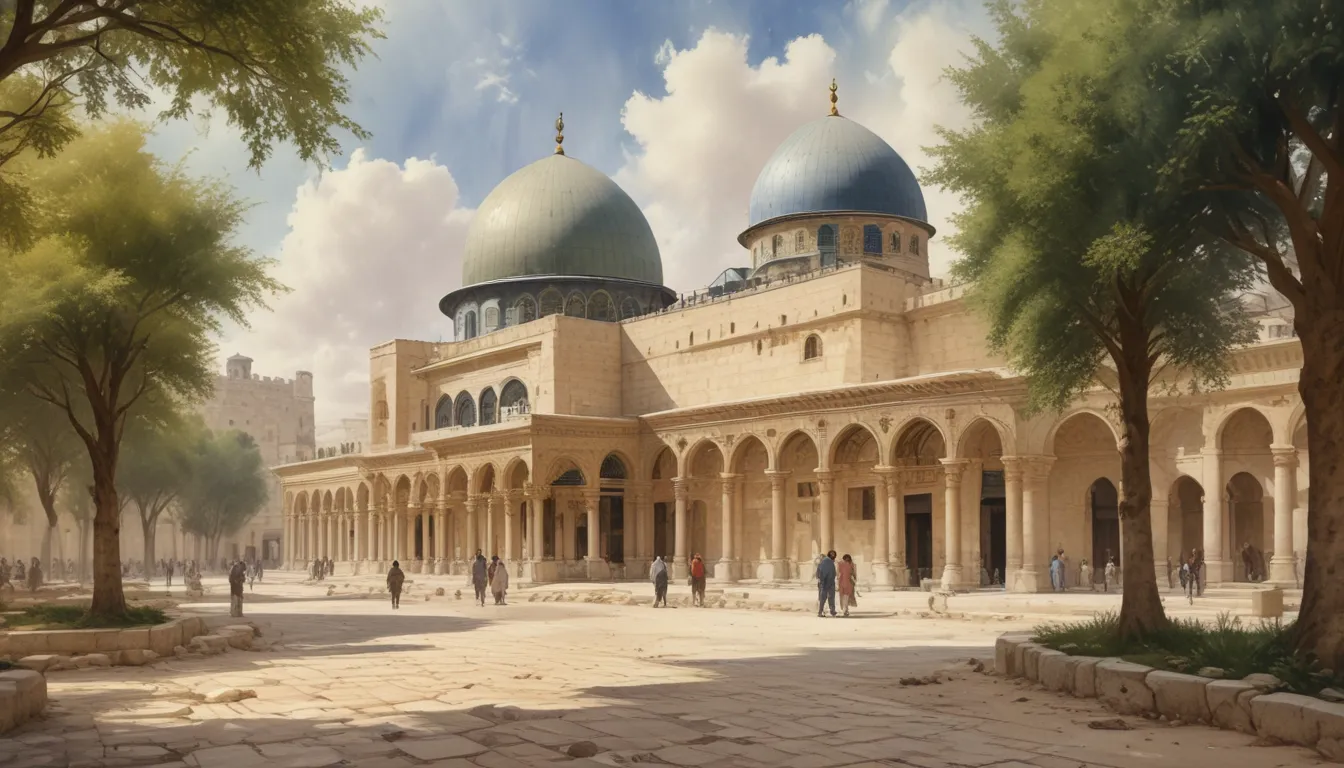The images in our articles are for illustrative purposes only and may not exactly match the content. They are intended to capture your interest and complement the text, not to replace it.
The Al-Aqsa Mosque, nestled in the Old City of Jerusalem, stands as a beacon of religious devotion and architectural splendor. With centuries of history woven into its walls, this sacred site entices millions of worshippers each year, beckoning them to seek spiritual solace and immerse themselves in its rich heritage. Join us on a journey as we unravel seventeen astonishing facts about the Al-Aqsa Mosque, shedding light on its significance and the alluring stories that envelop it.
Unveiling the Remarkable Al-Aqsa Mosque
- The Al-Aqsa Mosque stands as one of the oldest mosques globally, with its construction dating back to the early Islamic era in the 7th century.
- For Muslims worldwide, the Al-Aqsa Mosque holds a profound religious status, ranking as the third holiest site in Islam after the Kaaba in Mecca and the Prophet’s Mosque in Medina.
- Encompassing a sprawling 144,000 square meters, the mosque boasts an expansive open courtyard capable of accommodating thousands of worshippers during prayers.
A Glimpse into History and Resilience
- Throughout its existence, the Al-Aqsa Mosque has undergone multiple expansions and renovations, enhancing its architectural grandeur and capacity to host worshippers.
- Beyond its religious sanctity, the mosque carries significant historical importance, believed to be the site where the Prophet Muhammad embarked on his celestial Night Journey.
- Nestled within the mosque compound lies the magnificent Dome of the Rock, a visionary shrine characterized by its golden dome, symbolizing Jerusalem’s allure.
Embracing Challenges and Symbolizing Faith
- Despite enduring various trials over the centuries, including destruction, renovations by different ruling powers, and political strife, the Al-Aqsa Mosque remains a testament to resilience and unwavering faith.
- Its interior and exterior are adorned with intricate architectural embellishments, from detailed carvings to mesmerizing tile work and majestic arches, serving as a showcase of craftsmanship from diverse eras.
A Beacon of Spiritual Pilgrimage and Unity
- Serving as a pivotal pilgrimage site for Muslims globally, the Al-Aqsa Mosque witnesses millions of visitors annually, drawn by its deep religious significance and historical allure.
- Throughout history, the mosque has borne witness to pivotal events, from conquests to conflicts, cementing its status as a site of paramount historical importance.
Embracing Diversity and Inspiring Generations
- The mosque has long served as a hub for Islamic education and scholarly pursuits, attracting luminaries from around the world and fostering the spread of Islamic knowledge and teachings.
- It stands as a symbolic embodiment of Palestinian identity, resonating as a religious and national emblem within the heart of its people’s struggle for independence.
A Legacy of Resilience and Reverence
- Despite enduring damages from natural disasters, fires, and conflicts, the Al-Aqsa Mosque has stood the test of time, undergoing meticulous reconstruction and restoration to preserve its integrity.
- Non-Muslim visitors are welcomed to explore the mosque’s history, architecture, and spiritual significance, with specific areas potentially restricted during designated prayer times.
Cultivating Harmony and Architectural Splendor
- Symbolizing religious coexistence, the Al-Aqsa Mosque, alongside other sacred sites in Jerusalem, showcases a harmonious blend of faiths and cultures, illustrating the region’s diverse tapestry.
- Its architectural style has influenced renowned structures across the Islamic world, with its distinct features echoing in mosques from Spain to Southeast Asia.
A Timeless Beacon of Devotion
- Today, the Al-Aqsa Mosque remains a sanctuary for devout worshippers, serving as a haven for those seeking solace, prayer, and a connection to their faith amid its hallowed walls.






